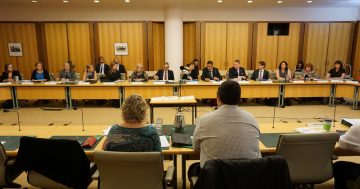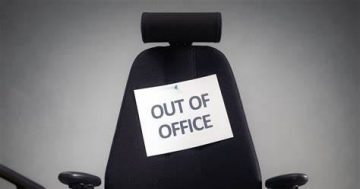Michelle Gibbings* says that in the COVID-19 era, wasting time may not actually be a waste of time.
 Like many, COVID-19 has impacted my work. Most notably, I am no longer flying most weeks and am spending way more time at home.
Like many, COVID-19 has impacted my work. Most notably, I am no longer flying most weeks and am spending way more time at home.
While being in lockdown mark 2.0 doesn’t feel like I am lying on a beach (I can dream about it though), the pace has shifted.
What I’ve noticed is that the slower pace has created space — space to think, reflect more and to delve deeper into topics of interest.
It’s also sparked creativity.
It’s curious, because at the same time there is so much uncertainty and many unknowns, and there are days when my brain feels like it is in a COVID fog.
The widely-used acronym VUCA (volatile, uncertain, complex and ambiguous) is no longer just an over-used acronym; it is what we are living and breathing every day.
The World Economic Forum’s research into the future of work is always useful, and they’ve just updated their perspective to include the critical skills needed post-COVID-19.
Future literacy
Which enables people to imagine and make sense of what the future holds.
Systems thinking
Having the mindset to think, communicate and learn about the connected systems in which you live and work.
This approach enables you to identify patterns and then improve how you analyse problems and design the optimal strategy to remedy.
Anticipation
How you learn to recognise possible futures and to use this developed consciousness to shape the decisions and actions you take today.
Strategic foresight
To broaden your exploration of alternative futures and better investigate the world-view that underlies possible, plausible, probable and preferred futures.
While there is specific learning that underpins each of those skills, what’s common is they all require space, and thinking time.
When we rush from meeting to meeting, event to event, even when it’s remote, it can feel hard, almost impossible, to find the time to pause.
As well, we are socialised into equating busyness with progress, and yet securing deep, meaningful progress requires space and quiet time.
The space to reflect, daydream, stare out the window and to do nothing in particular.
While carving out time for space and quiet can feel like a waste when there is so much to do, it’s quite the opposite.
Historian and author, Yuval Noah Harari said this:
“If you want to go deeply into any subject, you need a lot of time, and in particular you need the privilege of wasting time.
“You need to experiment with unproductive paths, to explore dead ends, to make space for doubts and boredom, and to allow little seeds of insight to slowly grow and blossom.
“If you cannot afford to waste time, you will never find the truth.”
To thrive in an ever-changing landscape, we need dedicated space to think, ponder, reflect and analyse so ideas can arise.
Once we have those ideas, we need to be comfortable not holding on too tight, and instead be open to having those ideas challenged, debated and stretched.
Doing this is more important than ever.
Finding that time won’t happen by accident. It takes deliberate planning and conscious thought.
It’s recognising the value that stems from what on the outside can appear like doing nothing.
Ask yourself: What if doing more, actually started with you doing less? What could that look like for you?
As author, Pico Iyer once remarked: “In an age of movement, nothing is more critical than stillness.”
*Michelle Gibbings is a Melbourne-based change leadership and career expert and founder of Change Meridian. She can be contacted at [email protected].
This article first appeared at changemeridian.com.au











